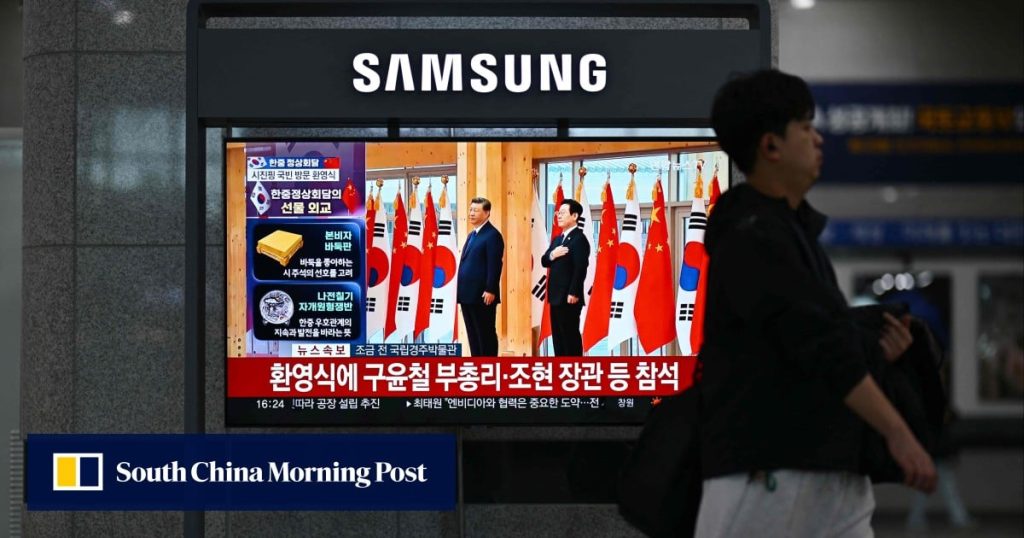Lawmaker Kim Young-bae said Xi had responded positively to a proposed South Korean performance in Beijing, prompting a rise in entertainment companies’ share prices.
“I hope that this will be the moment when the door opens to full-fledged K-culture advancement beyond the lifting of the THAAD ban,” Kim wrote on social media.
South Korean films, TV shows and music were hit by an unofficial boycott in 2016 after the country approved the deployment of the US Terminal High-Altitude Area Defence (THAAD) missile system in the country – something Beijing described as a security threat.
The ban saw the revenues generated by South Korean entertainment firms fall from US$781.79 billion in 2016 to US$135.55 billion the following year, according to the Korea Foundation for International Cultural Exchange.
During the visit, South Korea’s national broadcaster KBS signed a memorandum of understanding with China Media Group, a state-run media conglomerate that includes state broadcaster CCTV.


